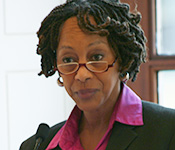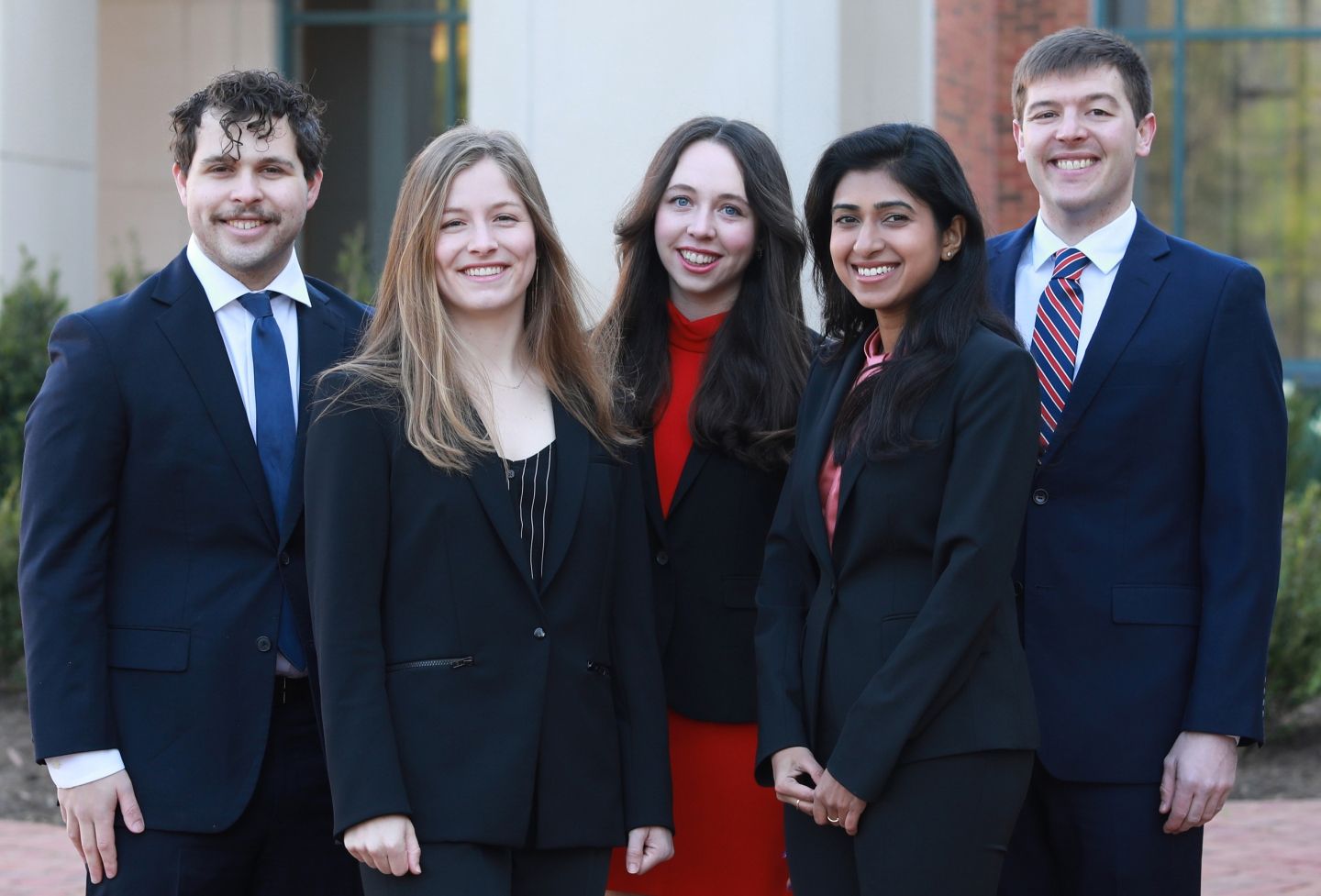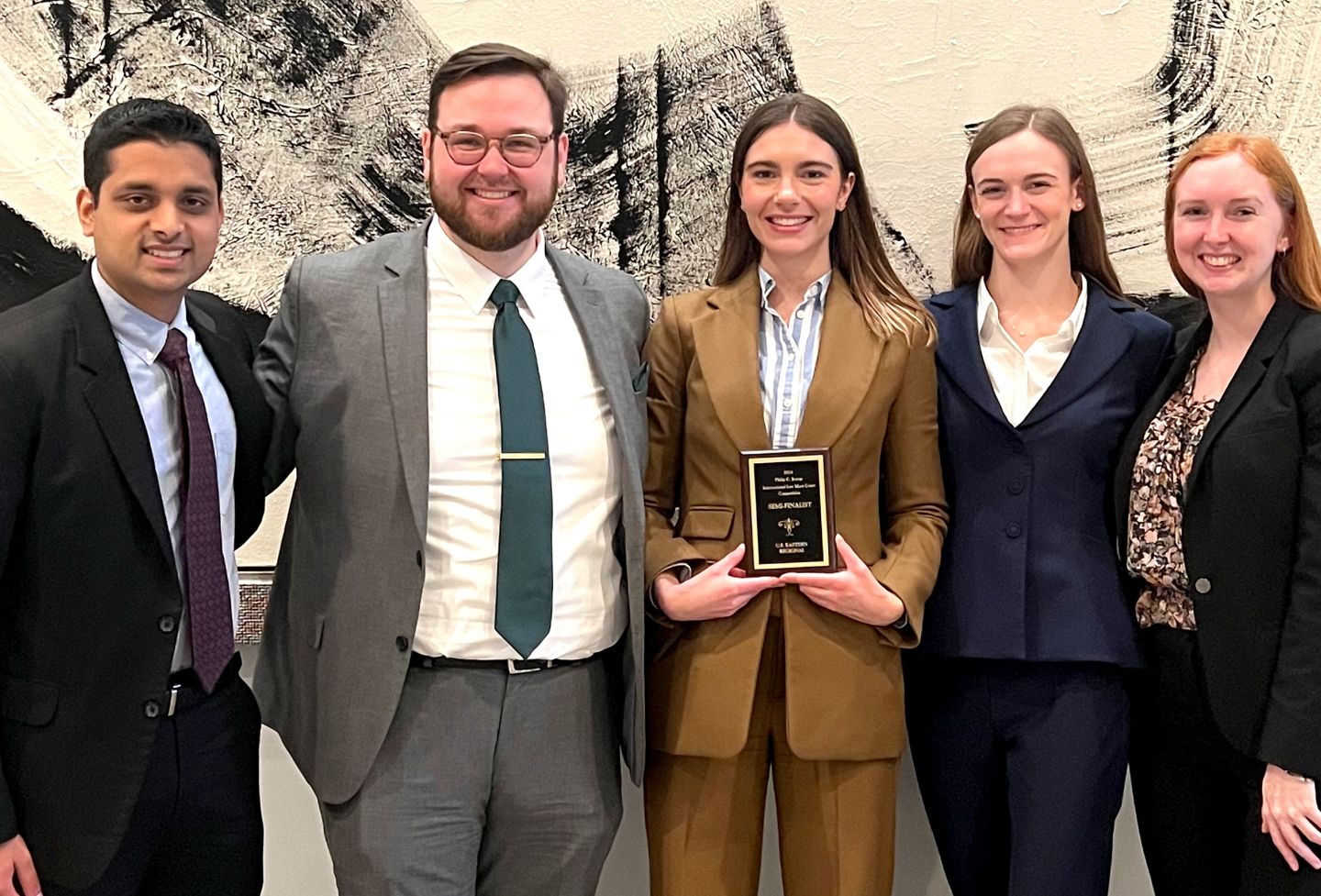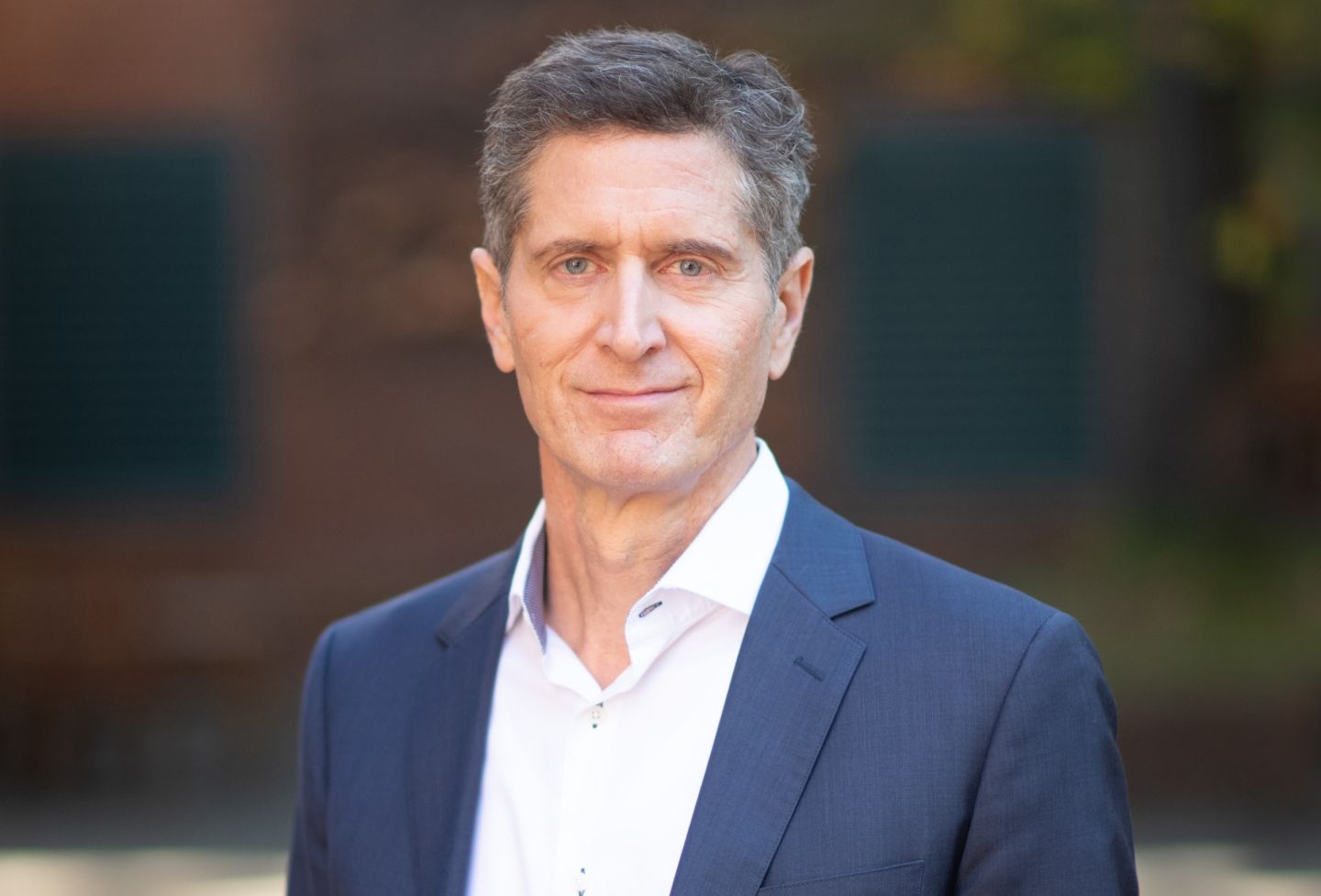National Human Rights Depend on International Action, Says U.N. Expert
Gay McDougall grew up in Georgia during the Jim Crow era of segregation in an impoverished community only a few generations removed from slavery. “We believed then that our situation was uniquely tragic,” McDougall said, “We often looked to the international community with the hope that somehow the world beyond this country operated on different rules…We were both right and wrong.” She learned, through her more than 35 years of international human rights work that, “racism is ubiquitous, it’s a global phenomenon.”
 Now a scholar-in-residence at the American University Washington College of Law, McDougall spoke on the topic “Bringing Human Rights Home” Feb. 27 in Caplin Pavilion. She is a former U.N. special rapporteur on issues of systematic rape and sexual slavery, a former executive director of the organizations Global Rights and Partners for Justice, and the first American elected to serve on the International Convention on the Elimination of all forms of Racial Discrimination (CERD). She currently serves as U.N. independent expert on minority issues.
Now a scholar-in-residence at the American University Washington College of Law, McDougall spoke on the topic “Bringing Human Rights Home” Feb. 27 in Caplin Pavilion. She is a former U.N. special rapporteur on issues of systematic rape and sexual slavery, a former executive director of the organizations Global Rights and Partners for Justice, and the first American elected to serve on the International Convention on the Elimination of all forms of Racial Discrimination (CERD). She currently serves as U.N. independent expert on minority issues.
McDougall dated the modern era of international human rights to 1948 with the adoption of the U.N. Universal Declaration of Human Rights. She noted that signatories made two commitments: one, to change their laws, policies, and practices so that they were in compliance with obligations under the treaty, and second, to submit to international scrutiny.
“The key to this system of accountability is the seemingly irrational fact that most countries care about criticisms of their policies when they’re named in international forums in front of other countries. The more powerful the country the more they seem to care,” she said.
Evidence of the fear of global criticism for the United States, according to McDougall, came a few years later at the time of Brown v. Board of Education when the U.S. was locked in a global struggle with the Soviet Union for the hearts and minds of emerging Third World nations. “The federal government submitted a brief to the Supreme Court [that] had in it the text of a letter from the secretary of state saying, in essence, that it would have great deleterious impact on [America] foreign policy…if the Supreme Court upholds segregation.”
Shortly thereafter, McDougall noted, the United States backed away from the system of accountability and for decades, “stood at arm’s length during this important developmental period of human rights.” Even today, she said, “the U.S. has ratified only a handful of these important conventions.” As recently as September 2007 the United States voted against the U.N. Declaration on the Rights of Indigenous People, which had been in negotiation for more than 20 years.
McDougall was critical of civil right lawyers and activists who were absent from such international forums over the last two decades, preferring instead to seek enforcement of human rights through litigation in the American judicial system. Adding, however, that “the tide is turning,” she reported that last week nearly 120 American lawyers, advocacy groups, and community activists submitted hundreds of pages of shadow briefs at a hearing in Geneva held by CERD, the rights commission on which McDougall used to sit.
“There is a rising tide of lawyers, judges, and activists in this country that are rebuilding our relations with the global movement for racial justice and human rights,” she said, adding, “We’re working to bring human rights home…and it’s having an influence on U.S. courts.”
Over the last few years, a significant docket of cases have come before the U.S. Supreme Court that touch on human rights issues, including humanitarian law and the laws of war. Such cases can influence all levels of government, she said, “separating what we used to call privileges, what is euphemistically called ‘entitlements’ in this country, and rights.”
Among the list of human rights areas where the United States can improve, McDougall cited “a disproportionately high percentage of minorities in jails and prisons; the unilateral abrogation of Indian treaties; violence and abuse to women belonging to racial, religious, or ethnic minorities, and racial disparities in female sexual and reproductive rights, specifically the disparity in HIV infection rates for minority women.”
Making the connection between human rights and local economics, McDougall said, “Societal problems like racism and globalization have created a world in which we are inextricably linked to things that are happening on the other side of the globe.
“It’s impossible to find a real solution to a problem like racial discrimination in one country without a reference to the global context in which it arises,” she said. “I can’t really see how you can tackle racial discrimination in the 21st century without tackling the reality of the global economy.”
Results of global meetings of the World Trade Organization, the International Monetary Fund, and even summits dealing with climate change have an impact on the U.S. economy and can determine what jobs will be available here, what sector those jobs will be in, and how much we will pay for products, she said. “These are battles that can’t be won by activism solely within the national boundaries,” she warned.
“We must begin to understand and frame our issues…using the language and the assistance of the international community in order to fashion good solutions, but also, importantly, to gain the allies that we’ll need in other places in the world that will join us in a struggle around similar issues, often against our own institutions.”
McDougall’s talk was sponsored by the Law School’s Center for the Study of Race and Law and the Human Rights Program.
Founded in 1819, the University of Virginia School of Law is the second-oldest continuously operating law school in the nation. Consistently ranked among the top law schools, Virginia is a world-renowned training ground for distinguished lawyers and public servants, instilling in them a commitment to leadership, integrity and community service.


